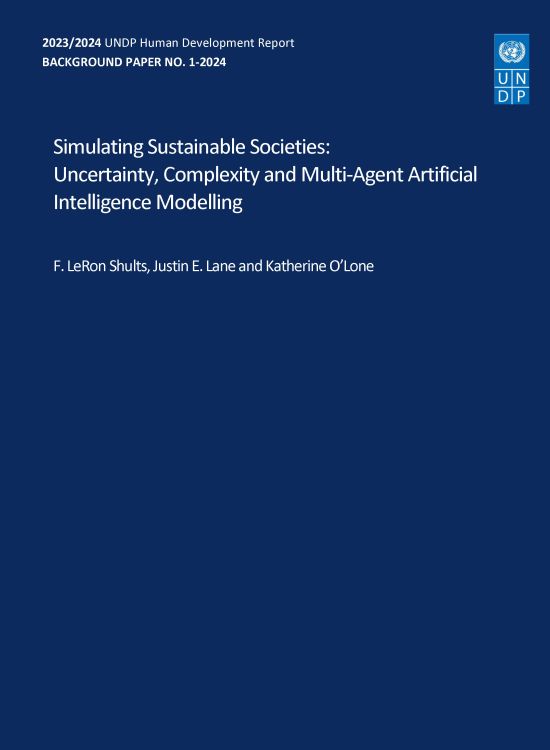Simulating Sustainable Societies: Uncertainty, Complexity and Multi-Agent Artificial Intelligence Modelling

UNDP (United Nations Development Programme). 2024. Simulating Sustainable Societies: Uncertainty, Complexity and Multi-Agent Artificial Intelligence Modelling. New York.
Simulating Sustainable Societies: Uncertainty, Complexity and Multi-Agent Artificial Intelligence Modelling
This background paper provides a case study from a project led by The Woolf Institute that combined news media analysis tools, stakeholder interview methods and simulation technologies to shed light on (and help to mitigate) the dynamics of polarization and conflict in Northern Ireland, the Balkans and South Sudan. Utilizing multi-agent artificial intelligence models developed by CulturePulse, the project was able to identify the main drivers of conflict and cooperation in these regions.
The models used psychologically realistic cognitive architectures and behavioral rules that take account of factors such as emotion, beliefs, norms, cultural identity and political ideology. Such tools can contribute to fulfilling the global Sustainable Development Goals, but only if relevant stakeholders and change agents are engaged in constructing empirically validated computational models and simulation experiments that can inform public discourse and policy planning and evaluation.